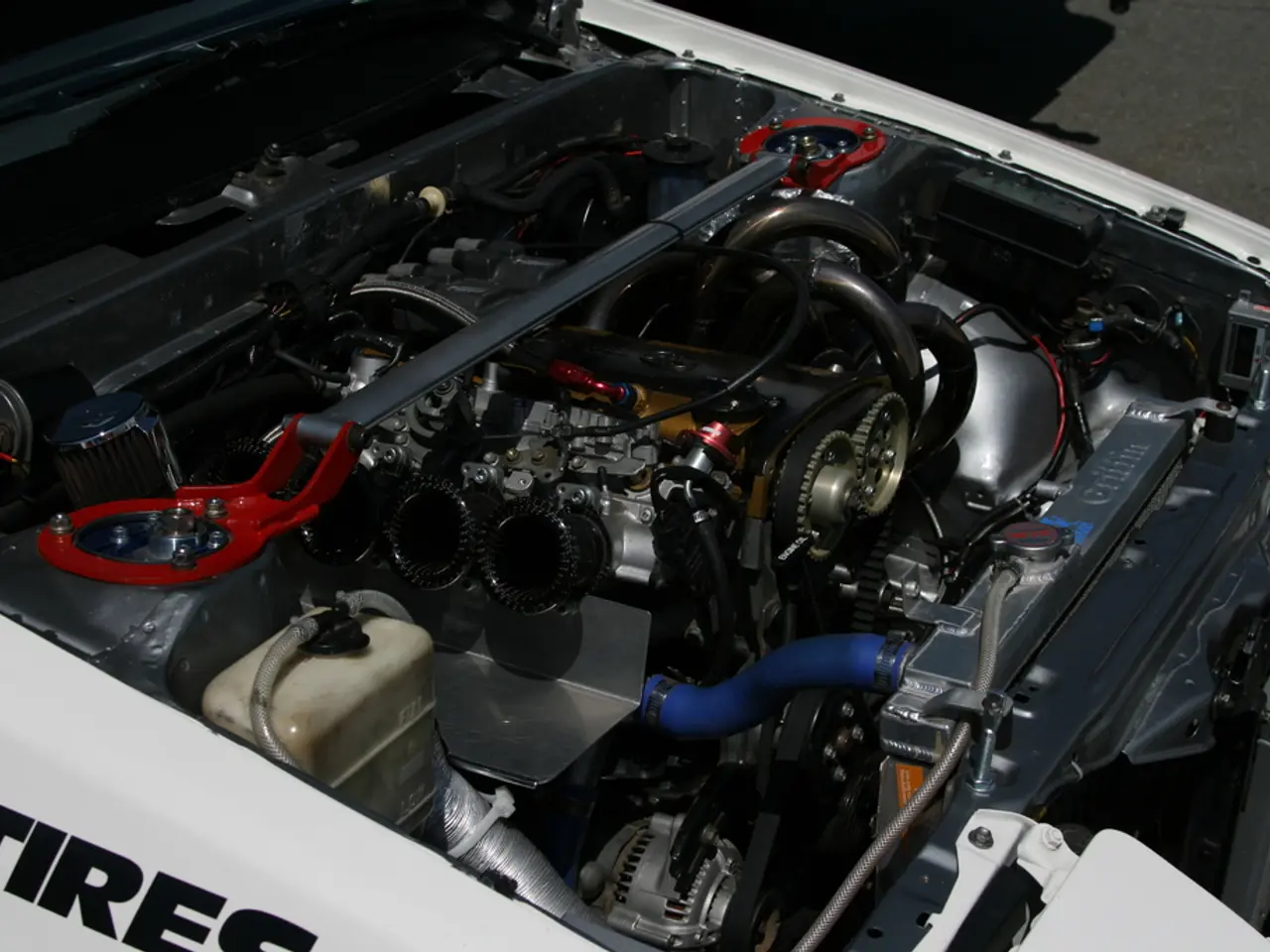Duration of Electric Vehicle Batteries as per recent statistics
In a groundbreaking development, electric vehicles (EVs) have been confirmed to have a longer lifespan compared to traditional petrol vehicles, according to a study conducted by telematics company Geotab. The study, which is based on data from over 10,000 electric vehicles, puts an end to the claim that EVs do not last beyond a few years, often made by sceptics.
The research reveals that the durability of EV batteries is a significant advantage over traditional petrol vehicles. Modern electric vehicles (EVs) have batteries designed to last, retaining approximately 64% of their original range after 20 years. This is a significant improvement over the lifespan of most petrol vehicles, which do not make it to their 15th birthday.
The study found that all batteries degrade over time, but the degradation rate for EV batteries is significantly lower compared to traditional batteries. The average EV battery degrades at a rate of 1.8% per year, as per data from UK-based telematries firm Geotab.
Nickel-based chemistries like NMC and NCM benefit from keeping charge levels between 20% and 80%. However, lithium iron phosphate (LFP) packs, while more tolerant, may see reduced longevity if consistently topped up. To extend the life of EV batteries, it's recommended to park in the shade and avoid repeated fast charging, as warmer environments can increase wear on EV batteries. Fortunately, most modern EVs manage battery temperatures with active cooling systems.
It's important to note that the study does not account for catastrophic events that could affect an EV's battery life. Additionally, the study does not specify the exact brands or models of the 10,000+ electric vehicles it draws data from. However, the findings support the claim that EVs have staying power and are quietly proving their durability.
The difference between EVs and traditional petrol vehicles lies in the durability of EV batteries. With a failure rate of under 0.5% for vehicles built in the past decade, EV battery failure is incredibly rare. This is a stark contrast to the failure rates seen in traditional petrol vehicles.
The latest study serves as further evidence that electric vehicles are here to stay. As more and more consumers make the switch to EVs, it's clear that the future of transportation is electric. With their longer lifespan, reduced environmental impact, and increasing affordability, electric vehicles are becoming an increasingly attractive option for consumers and businesses alike.
Read also:
- European transportation's sustainability and competitiveness rely on a "green industrial agreement" that serves the interests of both corporations and residents, as discussed in an Editorial from August 2024.
- Indian Oil Corporation's Panipat Refinery secures India's inaugural ISCC CORSIA accreditation for Sustainable Aviation Fuel production
- Porsche Macan Accelerates into Second Generation of Electric Power
- Increasing Trend Downthe Globe: A Growing Number of Individuals Opt for Electric Vehicles Over Long Distances







